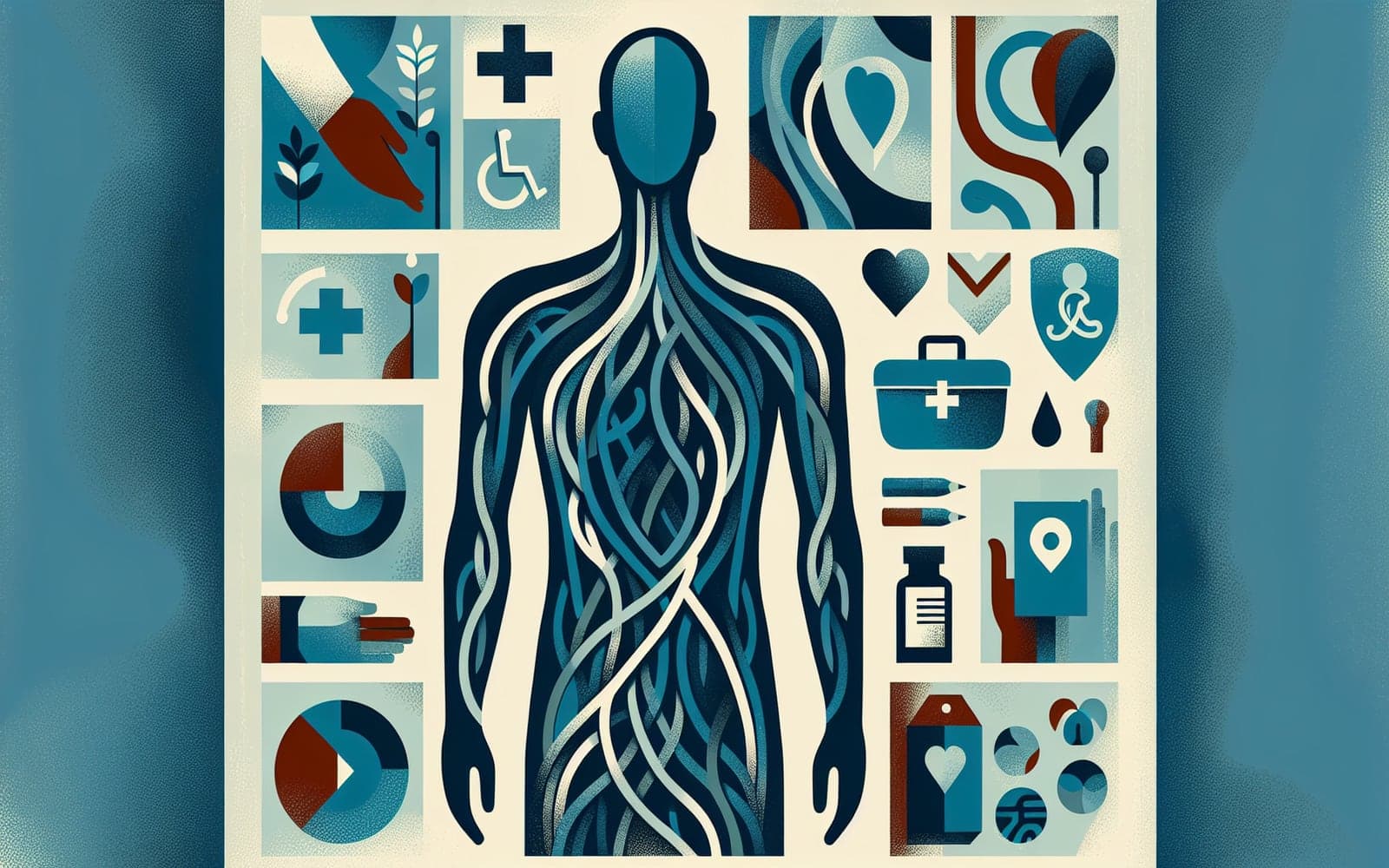Unpacking the Risk Factors for Mesenteric Venous Thrombosis
Published: Aug 01, 2024
Mesenteric venous thrombosis can be a silent and dangerous condition. Understanding its risk factors is essential for prevention and early intervention.
Contents
Acquired Risk Factors
Acquired risk factors for mesenteric venous thrombosis are those that develop due to lifestyle or other health conditions. These include inflammatory diseases like pancreatitis and inflammatory bowel disease, as well as trauma from surgery such as splenectomy. Certain medications, like oral contraceptives, and even obesity surgery can increase the risk of this condition.
Inherited Conditions
Inherited conditions play a significant role in mesenteric venous thrombosis. Genetic mutations such as the prothrombin G20210A mutation and Factor V Leiden mutation can make the blood more prone to clotting. Other inherited issues include deficiencies in proteins like protein C, protein S, and antithrombin III, which normally help to prevent clotting.

Other Contributing Factors
Apart from acquired and inherited factors, certain systemic conditions can heighten the risk. These include cancer, which can increase blood clotting, and infections like COVID-19 that have been linked to clot formation. Additionally, a history of venous thromboembolism in the family can indicate a higher likelihood of developing the condition.
Frequently Asked Questions
They are risk factors that develop due to lifestyle or health conditions, such as inflammatory diseases or surgery.
Genetic mutations like Factor V Leiden and deficiencies in proteins that prevent clotting are key inherited factors.
Yes, cancer can increase the likelihood of blood clotting, contributing to the risk.
Yes, COVID-19 has been linked to increased blood clotting, raising the risk for mesenteric venous thrombosis.
Key Takeaways
Recognizing and understanding the risk factors of mesenteric venous thrombosis can help in preventing this serious condition.
References
- Acosta S, Alhadad A, Svensson P, Ekberg O. Epidemiology, risk and prognostic factors in mesenteric venous thrombosis. Br J Surg 2008; 95:1245.
- Morasch MD, Ebaugh JL, Chiou AC, et al. Mesenteric venous thrombosis: a changing clinical entity. J Vasc Surg 2001; 34:680.
- Yoo EH, Jang JH, Park KJ, et al. Prevalence of overt myeloproliferative neoplasms and JAK2 V617F mutation in Korean patients with splanchnic vein thrombosis. Int J Lab Hematol 2011; 33:471.
This article has been reviewed for accuracy by one of the licensed medical doctors working for Doctronic. Always discuss health information with your healthcare provider.
AI Doctor Visit Required
Appointments available 24/7
15-min consultation. No hidden costs.
AI Doctor Visit Required
For safety reasons we have been forced to end this consultation.
If you believe this is a medical emergency please call 911 or your local emergency services immediately.
If you are experiencing emotional distress, please call the the Suicide & Crisis Lifeline at 988 or your local crisis services immediately.
Contact us
You can also email us at help@doctronic.ai
We aim to reply within 5-7 days
How likely are you to recommend Doctronic to friends or family?


